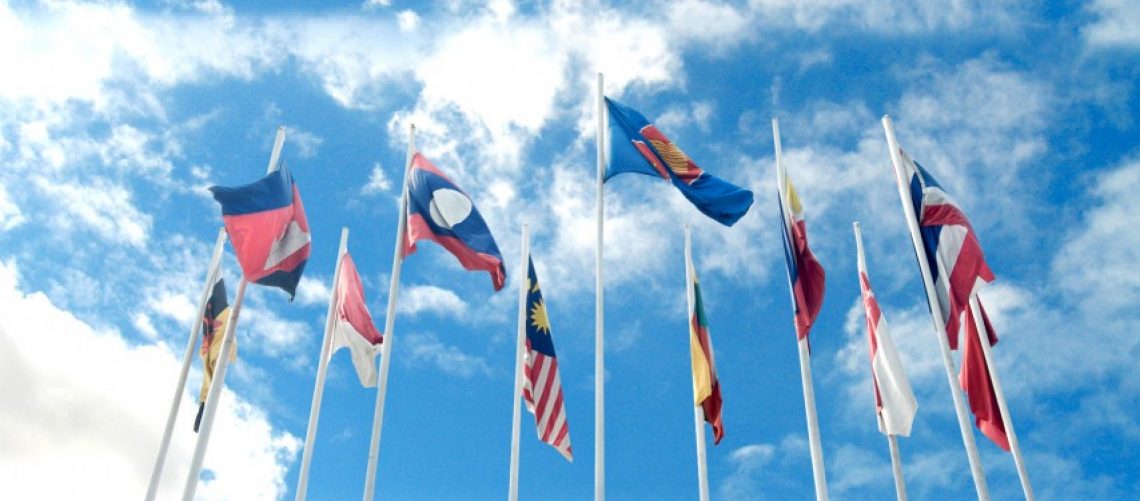- The Intellectual Property Offices of the Member States of the Association of Southeast Asian Nations (ASEAN), namely Brunei Darussalam, the Kingdom of Cambodia, the Republic of Indonesia, the Lao People’s Democratic Republic, Malaysia, the Republic of the Union of Myanmar, the Republic of the Philippines, the Republic of Singapore, the Kingdom of Thailand and the Socialist Republic of Viet Nam, and the Japan Patent Office (JPO) (hereinafter collectively referred to as the “Partners”) held the Fifth Heads of Intellectual Property Offices (IPOs) Meeting on 25 May 2015 in Nara, Japan.
- The Partners reaffirmed the importance of further strengthening cooperation on industrial property rights among them for their mutual prosperity and development, based on the strong relationships between ASEAN and Japan over the years.
- The Partners recognized the importance of industrial property system in facilitating trade and investment, taking into account the different levels of economic development and capacity and differences in national legal systems; and fostering innovation and technology transfer to achieve sustainable economic development in ASEAN and Japan.
- The Partners emphasized that deepening cooperation among them contributes to the achievement of the ASEAN Economic Community (AEC) by transforming ASEAN into an innovative and competitive region through the use of IP for their nationals and ensuring that the region remains an active player in the international IP community.
- To this end, the Partners affirmed the ASEAN IPOs – JPO IPR Action Plan 2015 – 2016 and the further deepening of their cooperation beyond 2016.
- The Partners reaffirmed that the Sixth Heads of IPOs Meeting would be held on the occasion of the 50th Meeting of the ASEAN Working Group on Intellectual Property Cooperation, which is scheduled in July 2016.
- ABOUT ASEANThe Association of Southeast Asian Nations, or ASEAN, was established on 8 August 1967 in Bangkok, Thailand, with the signing of the ASEAN Declaration (Bangkok Declaration) by the Founding Fathers of ASEAN: Indonesia, Malaysia, Philippines, Singapore and Thailand. Brunei Darussalam joined ASEAN on 7 January 1984, followed by Viet Nam on 28 July 1995, Lao PDR and Myanmar on 23 July 1997, and Cambodia on 30 April 1999, making up what is today the ten Member States of ASEAN.Menu
- WHAT WE DO
ASEAN organs always strive to achieve ASEAN’s goals and objectives, the Secretary-General of ASEAN and the ASEAN Secretariat shall be functioned as coordinating Secretariat to help facilitate effective decision-making withing and amongst ASEAN bodies. In addition, each Member State shall appoint a Permanent Representative to liaise with Secretary-General of ASEAN and the ASEAN Secretariat
Menu - WHO WE WORK WITH
ASEAN shall develop friendly relations and mutually beneficial dialogues, cooperation and partnerships with countries and sub-regional, regional and international organisations and institutions. This includes external partners, ASEAN entities, human rights bodies, non-ASEAN Member States Ambassadors to ASEAN, ASEAN committees in third countries and international organisations, as well as international / regional organisations.
Menu - OUR COMMUNITIES
The rodmap for an ASEAN Community (2009-2015) was declared by the leaders in 2009. The ASEAN Community, anchored on three community pillars: Political-Security Community, Economic Community, Socio-Cultural Community was launched in 2015. The ASEAN 2025: Forging Ahead Together was introduced in 2015 as a Post-2015 Vision. It comprises the ASEAN Community Vision 2025, the ASEAN Political-Security Community Blueprint 2025, the ASEAN Economic Community Blueprint 2025 and the ASEAN Socio-Cultural Community Blueprint 2025
Menu - SITEMAP





